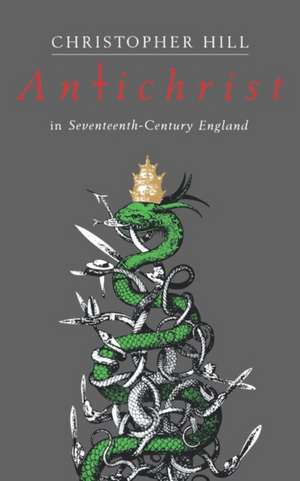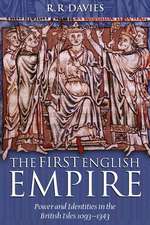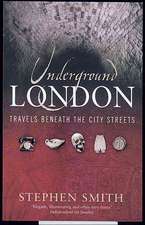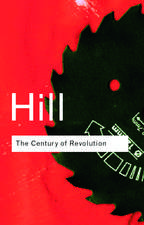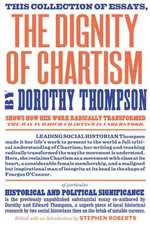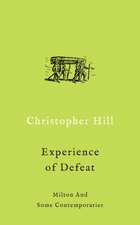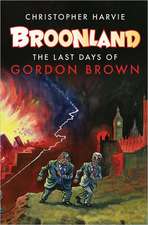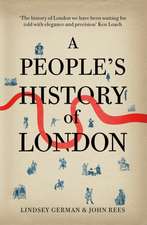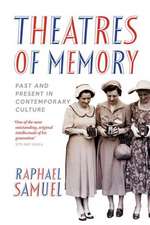Antichrist in Seventeenth Century England (REV): Riddell Memorial Lectures, cartea 41
Autor Christopher Hillen Limba Engleză Paperback – 31 mai 1990
Christopher Hill, one of Britain’s most distinguished historians, here reconstructs the significance of Antichrist during the revolutionary crises of the early seventeenth century. Radical Protestant sects applied the term—a name synonymous with repression and persecution—to those Establishment institutions of which they disapproved; in particular, the Pope. Then, with that revolution in thought which resulted in the separation of religion from politics, the figure of Antichrist lost its significance.
Preț: 111.86 lei
Nou
Puncte Express: 168
Preț estimativ în valută:
21.41€ • 22.27$ • 17.67£
21.41€ • 22.27$ • 17.67£
Carte disponibilă
Livrare economică 24 martie-07 aprilie
Preluare comenzi: 021 569.72.76
Specificații
ISBN-13: 9780860919971
ISBN-10: 0860919978
Pagini: 212
Dimensiuni: 127 x 203 x 13 mm
Greutate: 0.24 kg
Ediția:REV
Editura: VERSO
Seria Riddell Memorial Lectures
ISBN-10: 0860919978
Pagini: 212
Dimensiuni: 127 x 203 x 13 mm
Greutate: 0.24 kg
Ediția:REV
Editura: VERSO
Seria Riddell Memorial Lectures
Notă biografică
Christopher Hill (1912–2003) was educated at Balliol College, Oxford, and later became Master of the college. His celebrated and influential works include Intellectual Origins of the English Revolution, The World Turned Upside Down and A Turbulent, Seditious and Fractious People: John Bunyan and His Church.
Recenzii
“If any undergraduate wishes to work on the connection between Puritanism and revolution, this should be the first book on his bibliography.”—Conrad Russell, History
“Here is good vintage Hill, daring to take seriously eccentric-sounding subjects, and never making the crude mistake of underestimating the genuine religious basis of dissent.”—Bernard Crick, New Statesman
“Arguably his most flawless achievement—an inspiring lesson in scholarship, writing and interpretation.”—Times Literary Supplement
“Here is good vintage Hill, daring to take seriously eccentric-sounding subjects, and never making the crude mistake of underestimating the genuine religious basis of dissent.”—Bernard Crick, New Statesman
“Arguably his most flawless achievement—an inspiring lesson in scholarship, writing and interpretation.”—Times Literary Supplement
